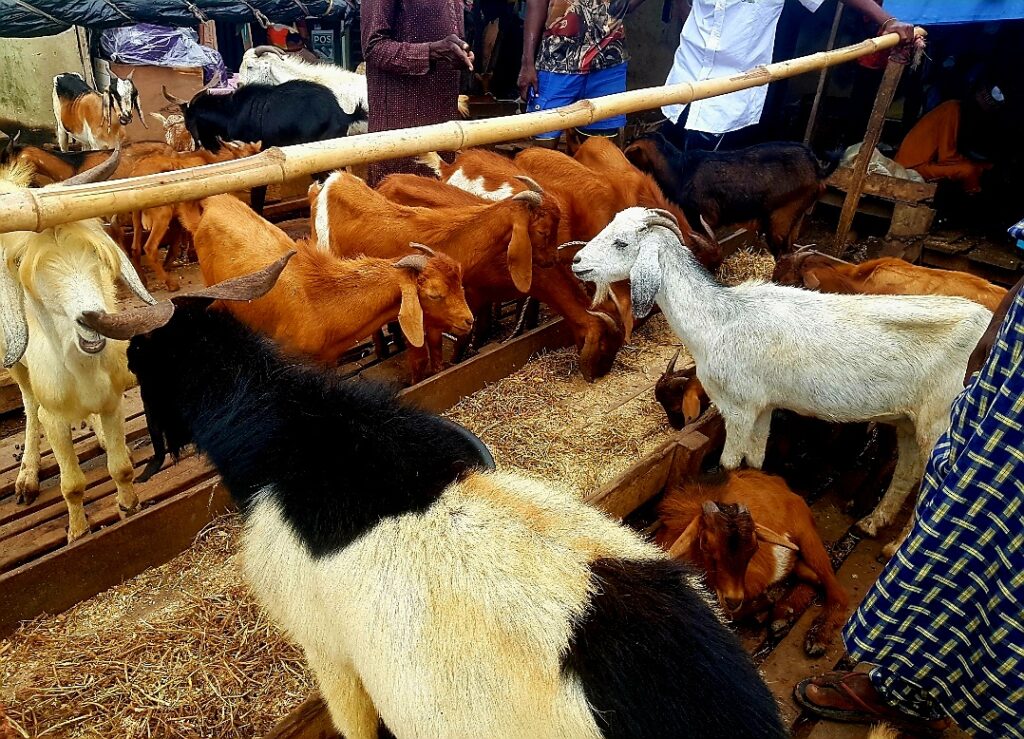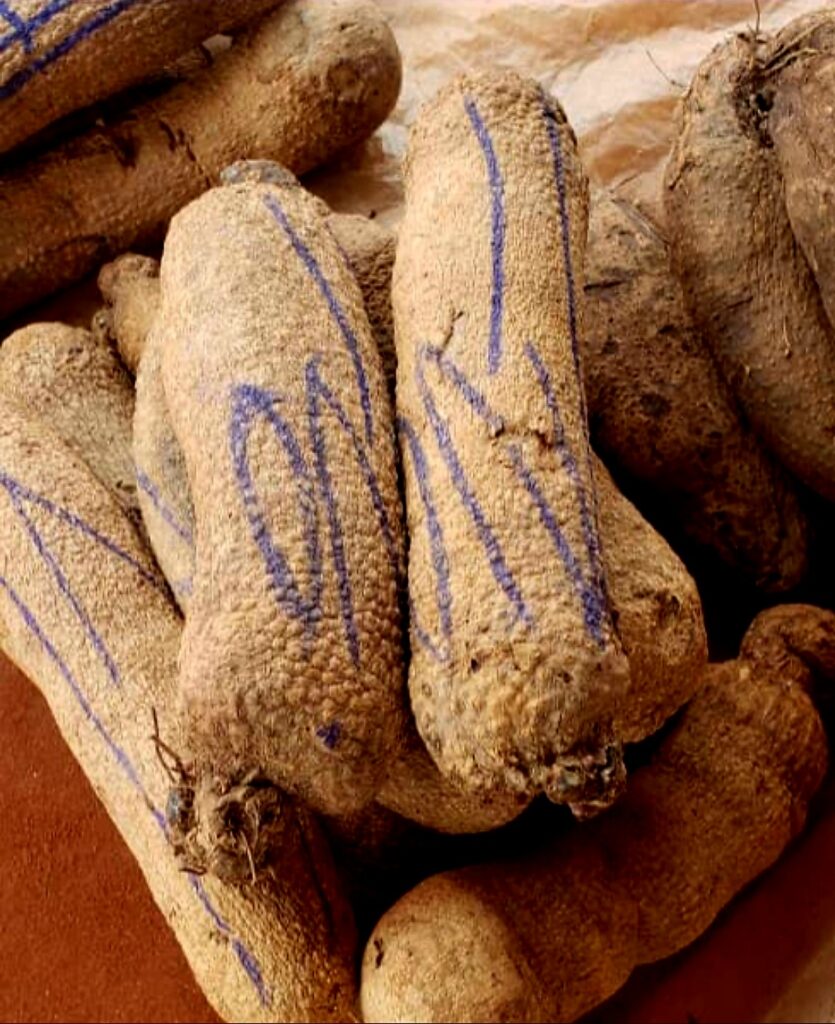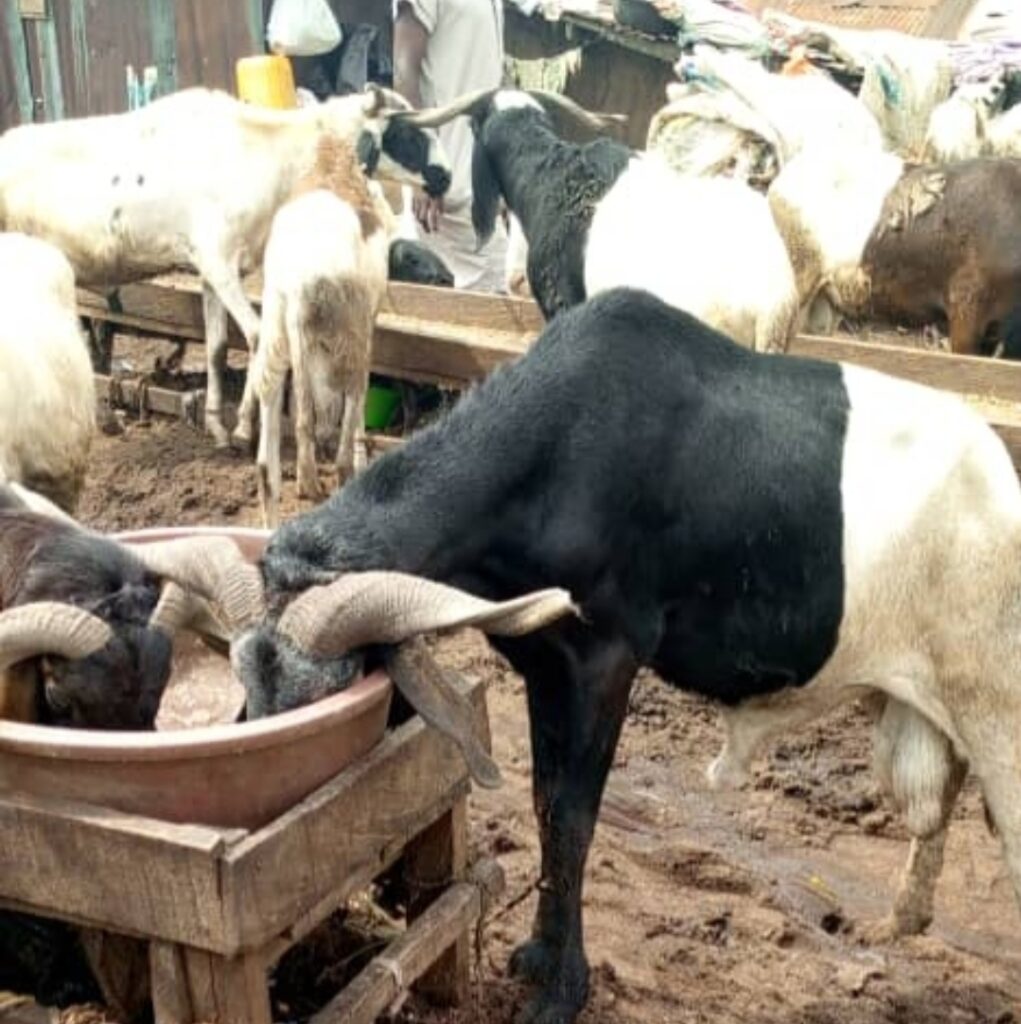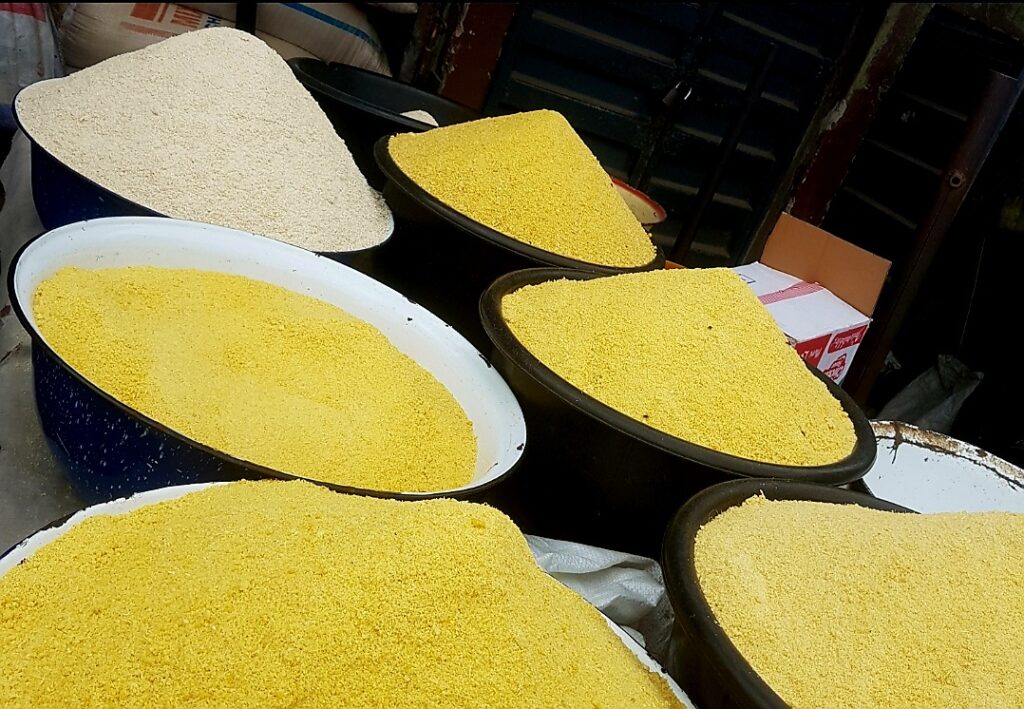EXCLUSIVE: Rampant Ram Theft and Price Gouging Mar Eid-el-Kabir Celebrations in Nigeria
. . . As Nigerians mark Eid-el-Kabir, a News Investigation reveals widespread price inflation and theft of rams, traditionally sacrificed during the festival. Videos of naked men paraded for stealing rams aimed to deter the practice, but market sellers are accused of overpricing, fueling forced inflation.
Our investigation uncovered shocking price disparities: rams bought for N80,000 in Katsina were resold for N250,000 in Abuja, N600,000 in Warri and Benin, and N750,000 in Lagos. This exposé comes as Nigerians struggle with economic hardship, casting a shadow over the festivities.
Our reporter, Collins Odigie Ojiehanor, has the full story on how soaring food prices and economic struggles are dampening Eid-el-Kabir celebrations in Nigeria.
As Nigeria joins the rest of the world in celebrating Eid-el-Kabir, residents across the country witness a fallout in the festivities overshadowed by significant economic challenges. Amid soaring food prices and mounting economic challenges, this year’s Eid-el-Kabir festivities in Nigeria were noticeably subdued, affecting what is traditionally a time of joy and communal celebration.
The sharp increase in the cost of essential commodities, exacerbated by inflation, left many families struggling to afford the customary feasts and charitable donations that define the holiday. As economic pressures continue to strain household budgets, reflecting broader concerns about the country’s economic trajectory and the everyday hardships faced by its citizens, the essence of Eid-el-Kabir has been profoundly affected.
High Costs, Economic Concerns Weaken Festive Spirits
According to a market survey conducted by our reporter on Monday, livestock prices saw a significant surge. In Edo State, at the popular Eyaen and Aduwawa Cattle Markets, traders explained that this year’s sales dropped compared to previous years due to the high costs. Mr. Mohammed Ibrahim, a trader, explained, “A ram that sold for N600,000 on Sunday dropped to N350,000 by Monday. Similarly, rams that were N350,000 are now N200,000, and those that were N400,000 are now N250,000.”

In Lagos, at a major cattle market around Ojodu Berger, Lagos-Ibadan Express Way and Mile 12 Market, Mr. Sani Abubakar, a cattle seller, shared, “Rams that sold for N600,000 on Sunday are now N450,000. Those that were N300,000 are now N200,000, and rams that were N200,000 are now between N130,000 and N100,000. Goats that ranged from N80,000 to N120,000 are now sold between N60,000 and N90,000.”
Mr. Yusuf Ali, a livestock seller expressed sad feelings, stating, “This year’s sales dropped compared to other years due to the high cost. Many customers now buy less because they can’t afford to spend as much.”
Similarly, prices of staple food items have soared. In Edo State, Mrs. Helen Okafor, a trader at Ramat Park Market, Benin City, said, “Per paint rubber measurement, the price of white beans has risen to N5,500, and brown beans to N6,000. Rice now costs N4,200, and yellow garri is N3,500. Yams range from N1,500 to N2,000 per tuber. These prices have made it difficult for people to buy in large quantities as they used to.”
In Lagos, the situation was similar. At Mile 12 International Market and Kosofe, prices were even higher. Mr. Emeka Chubike, a trader at Kosofe Market, reported, “White beans now cost N8,000 per paint rubber, brown beans N9,000, rice N6,500, yellow garri N3,500, and white garri N3,400. Yams range from N2,000 to N3,500 per tuber. It’s been tough for both sellers and buyers.”

Residents Voice Their Struggles
As Nigeria continues to struggle with soaring food prices and rising economic challenges, the voices of its residents paint a distressing picture of hardship. From urban cities to remote villages across the country, families are facing unprecedented financial strains that have fundamentally altered their daily lives and traditional celebrations.
The sharp increase in the cost of essential commodities, worsened by inflation, has forced many households to reconsider their spending habits and prioritize basic necessities over once-cherished customs, as economic pressures continue to tighten their grip.
In Edo state, Mrs. Okosun Johnson, a resident of Benin City, expressed her concerns: “The prices of basic food items have skyrocketed. It’s challenging to celebrate when you can hardly afford the essentials. We are hoping for some change soon. We had to cut down on our usual celebrations,” Mrs. Efe Ajayi lamented, her voice shaded with disappointment.
“The prices of everything have doubled, if not tripled. Normally, we would travel down to Auchi, we would host a large gathering with relatives and friends coming together in our family house, filling the house with laughter and the aroma of traditional dishes. But this year, we only invited close family. It’s disheartening because Eid-el-Kabir is a time for togetherness.”
Mr. Okosun Johnson, echoed similar sentiments, stating, “Eid-el-Kabir is a time for joy and sharing, but with the current economic situation, it’s difficult to maintain the same spirit. The government needs to address these issues urgently.”
In Lagos, Aisha Omobolanle shared her experience, stating that “The hike in price of everything, not just food caused a drop in Eid celebration. People had to go below moderate to celebrate. Ram, which is a significant item was too expensive, even the one we got was so tiny, it was embarrassing,” she said expressing deep disappointment. “Usually, it’s a full blown party for us, but omo! This year, we just did low-key. Small food, small ram, few drinks, everybody went home. It was just the grace of God many people celebrated. People were at our gate till evening but food has finished and we won’t kill ourselves because we want to give out food. Wo! It just wasn’t the usual bubbly Eid,” she added.

Mr. Aliyu Abubakar stated, “This year has been particularly tough. We couldn’t afford a full ram, so we had to join hands with two other families to get a ram for N300,000. We had to make do with what we could afford. I hope things get better soon because it’s hard to see the children disappointed.”
Another resident, Oyinkasola Azeez, remarked, “Economic challenges had a noticeable impact on the celebration. Food is costly, and many families can’t afford a ram for Sallah. Celebrations were minimal compared to the past. Even those who usually travel for Sallah couldn’t afford to do so this year because they don’t have what to give home.”
Inflation and Economic Pressures Hits Hard
The relentless rise in inflation and the sharp increase in food prices have significantly impacted household expenses and consumption patterns across Nigeria. According to the latest Consumer Price Index (CPI) report by the National Bureau of Statistics (NBS), the headline inflation rate increased to 33.95% in May 2024, up from 33.69% in April 2024, marking a considerable jump from the 22.41% rate recorded in May 2023. The Food inflation rate in May 2024 was 40.66% on a year-on-year basis, which was 15.84% points higher compared to the rate recorded in May 2023 (24.82%).
Current selected Food Price Watch data for April 2024 paints a stark picture of the economic pressures faced by Nigerians. The average price of 1kg of local rice surged by 155.93% year-on-year to N1,399.34, and saw a month-on-month increase of 3.47% from N1,340.74 in March 2024. Similarly, the price of 1kg of white garri increased by 134.98% year-on-year to N851.81, with a 13.59% rise from N749.89 in March 2024.
The price of 1kg of tomatoes jumped by 131.58% year-on-year to N1,123.41, and by 17.06% from N959.68 in March 2024. Additionally, the average price of 1kg of brown beans increased by 125.43% year-on-year to N1,387.90, while the price of 1kg of yam tuber surged by 154.19% year-on-year to N1,130.37.
The rise in Food inflation on a year-on-year basis was caused by increases in prices of the following items: Semovita, Oatflake, Yam flour prepackage, Garri, Bean, etc (which are under Bread and Cereals Class), Irish Potatoes, Yam, Water Yam, etc (under Potatoes, Yam and other Tubers Class), Palm Oil, Vegetable Oil, etc (under Oil and fat), Stockfish, Mudfish, Crayfish, etc (under Fish class), Beef Head, Chicken-live, Pork Head, Bush Meat, etc (under Meat class) according to the NBS report.

Analysis by zone showed that the average price of 1kg Rice local sold loose was highest in the South-west at N1,615.21, followed by the South-south at N1,564.85. Similarly, the average price of 1kg of Garri white was highest in the South-south and the South-west at N1,031.19 and N 982.42, respectively.
The South-south also recorded the highest average price of 1kg of Tomato at N1,689.40, followed by the South-west at N1,429.06, while the South-south and South-west equally recorded the highest average price of 1kg of beans brown (sold loose) at N1,594.84 and N1,579.64, respectively.
The persistent inflationary trend has put immense pressure on household budgets, forcing families to make difficult choices about their spending. The soaring prices have forced many households to drastically alter their consumption patterns.
Families are cutting back on non-essential items and prioritizing basic necessities, often compromising on the quantity and quality of food they can afford. The significant rise in staple food prices means that families have to spend a larger portion of their income on groceries.
The economic strain is also affecting social and cultural practices, as evidenced by the subdued Eid-el-Kabir celebrations. Families who traditionally host large gatherings and share food and gifts are now unable to do so, diminishing the communal and festive spirit of such occasions. This change not only impacts individual families but also the social fabric and cultural cohesion within communities.
Hope Amidst Hardship
Despite the economic challenges, some residents remain hopeful. Alhaji Musa Abdullahi highlighted the importance of unity and support during these times: “We must come together as a community, help those in need, and uphold the values of sacrifice and generosity that Eid-el-Kabir teaches us.”
Aisha Bello, noted that “It has been a tough year for everyone, but we cannot let these difficulties break our spirit,” she said. “In my neighborhood, we did a small food-sharing activity. Those who have a little extra contribute, and we distribute it to families who do not have enough. It’s not much, but it’s a way to ensure that no one feels completely left out during this festive period.”
Mr. Yusuf Bello, a trader shared that despite the condition, the celebration is a reminder to stay united: “Times are hard, Eid is a reminder to stay united and support each other. We can overcome these challenges if we stand together.”
As families across Nigeria adapted to the economic strain, many found themselves relying on simpler, less expensive meals. The traditional slaughtering of animals, a key part of the celebrations, became a luxury for only the wealthier families, leaving many to mark the occasion with quiet meals and subdued gatherings.





Comments